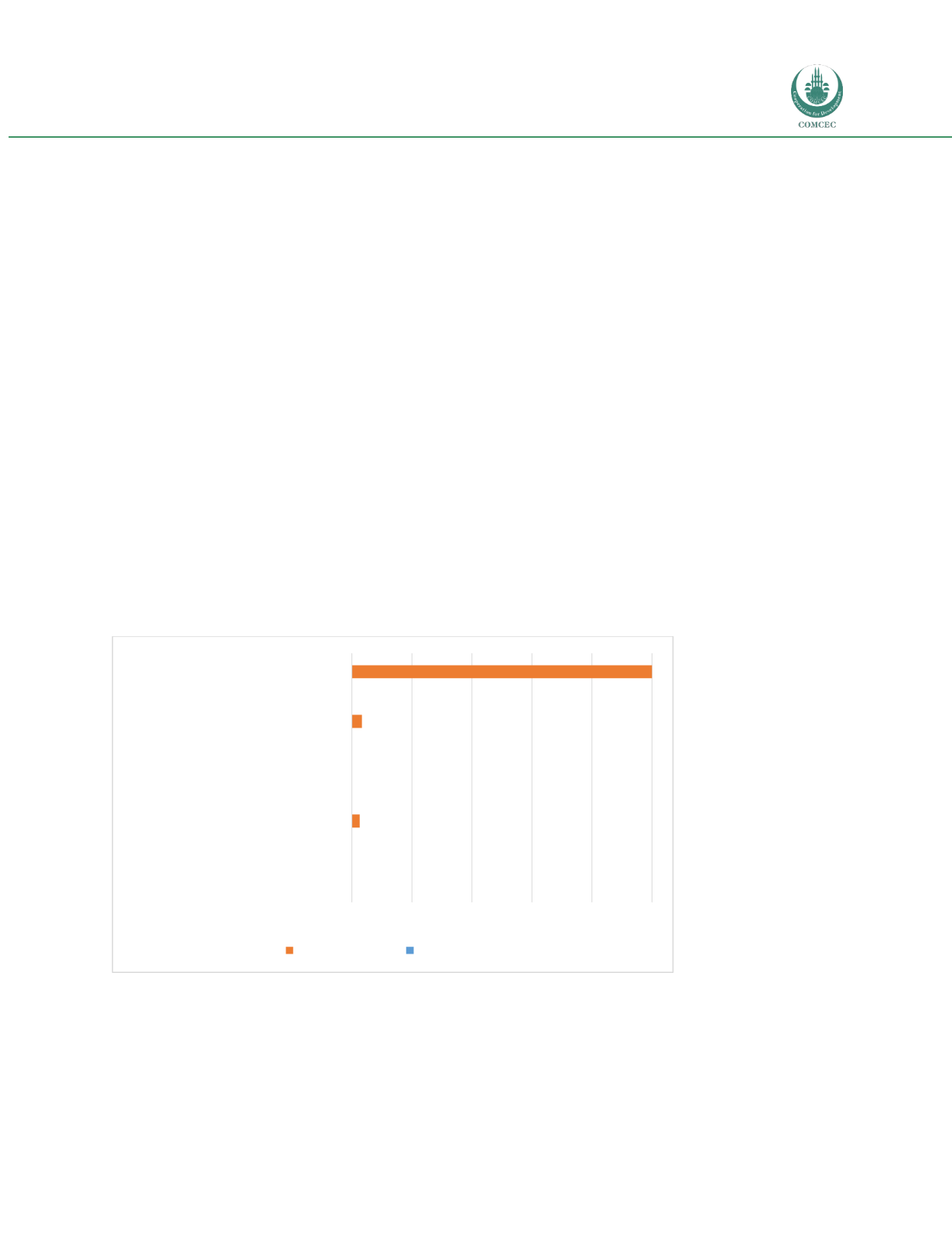

Strengthening the Compliance of the OIC Member States
to International Standards
61
Figures 22-27 repeat the analysis for the five largest value export sectors of the Arab group. By
comparing these figures with those for the African group, it is immediately clear that the product
composition of trade matters a great deal in terms of assessing the standards environment within the
OIC itself. In both Nigeria and Pakistan, electrical machinery and equipment is subject to a very high
number of standards—and it is important to recall that NTM Map only captures mandatory, public
standards. In particular in Nigeria, the sector is subject to 267 TBTs, which is a very high number, and
much more than is observed in the presumptively high standard EU. A similar situation is apparent in
the case of organic chemicals in Pakistan, where 49 TBTs are in force. A conclusion that can be
tentatively drawn from this analysis is that at least some OIC member states are overly reliant on
mandatory public standards in some sectors of export interest to other OIC member states. As noted
above, the clear trend in standards systems around the world is to reserve mandatory public standards
for core issues of health and safety only, with voluntary standards used to structure other marketplace
issues. It is important to nuance this conclusion, however, by noting that the coverage ratio of SPS
measures and TBTs is not close to one, which indicates that a significant proportion of sectoral exports
by value in fact achieve market access without being affected by these measures.
Figure 22: Frequency of SPS measures and TBTs in Nigeria, five largest value exports of the Arab
group
Source: NTM Map.
0
0.2
0.4
0.6
0.8
1
Mineral fuels and oils
Organic chemicals
Plastics and plastic articles
Precious stones and metals
Electrical machinery and equipment
TBT Frequency SPS Frequency
















